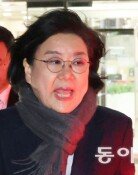Secrets of Worlds Best Small Firms
Secrets of Worlds Best Small Firms
Posted January. 01, 2007 03:39,
Royal Huisman is a luxury yacht manufacturing company in Vollenhove, 60 kilometers northeast of Amsterdam, Holland. It is a small company with only 300 employees, but the Royal Huisman brand is prestigious enough to stir the hearts of distinguished persons worldwide.
This company rules half of the worlds luxury yacht market. The most luxurious products are priced at stunning levels, costing 100 billion won each. Alice Huisman, the fourth successive owner in the companys history of 80 years, showed strong pride in her companys product, saying, We are a company that has grown based solely on our goal to build the best yachts.
The leaders of the global market are mostly major corporations. However, there are quite a few companies worldwide that have become world-class companies with only a few hundred or even fewer employees by focusing on a specific market. The outstanding performance of these companies, which is based on unique technology, fresh ideas, and stable management, is playing an important role in enhancing the competitiveness of their countries as well.
As part of our 2007 New Years project, we are beginning a long-running series that visits small but strong companies that are at the head of their markets worldwide and analyzes the secrets of their success.
Frequentis, an air traffic control systems manufacturing company in Austria with 600 employees, has been presenting innovative technology, including their adoption of a digital system in 1990, the first ever in the field. Their share in the world market ranks first at 30 percent. Güdel of Switzerland, a company that manufactures industrial robots, stands out internationally with its technology that allows it to manufacture robots at over twice the speed of its competitors.
As in the instances above, the small but strong companies that are roaming the world market focus on competitive technology as the main goal of management. The companies we visited usually invested somewhere around 15 percent of their profit towards research and development (R&D). Timo Gatsonides, Managing Director of Gatsometer, the number one company in the traffic lights and speed enforcement market that has only 90 employees, emphasized, Technology means marketing ability.
Companies that have created new markets by their flexible corporate culture, which allows them to speedily and directly make the creative ideas of their employees into products, also stand out.
MBT of Switzerland has created an entirely new field of footwear that treats arthritis and is making 300 billion won in 20 countries. A bath mat manufacturing company of Czechoslovakia, Grunt, holds a stunning 90 percent of the Czech market by transforming the everyday bath mat into an interior decoration. Representative Grunt explained, We worked together with famous designers to make our products both beautiful and useful, and thus were able to successfully fend off the attack of cheap Chinese products.
Most companies share the common trait of ensuring stable management by having a family-centered management system at the core.
A deep love and passion for the family business could be felt in the CEOs who had managed the company for several generations. The strong intimacy between owners and employees was at the bottom of the success of these companies.
Director Shin Soon-jae of the KOTRA overseas market research team, who holds a doctorate degree in political economy from the University of Hamburg and accompanied us on our coverage for this column, said, I was much impressed by the unreserved communication between company directors and employees, the love for their company, and the loving and caring attitudes of the people and government toward the companies. An atmosphere in which small but strong companies that can compete at the world level can thrive must be created in Korea as well.





![“한동훈, 정치생명 걸고 무소속 출마해 평가받는 것 고려할만”[정치를 부탁해]](https://dimg.donga.com/c/138/175/90/1/wps/NEWS/IMAGE/2026/01/19/133186982.1.jpg)

